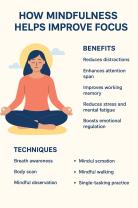What are the good things about plastic surgery?
Plastic surgery, when approached thoughtfully and responsibly, can offer various benefits to individuals. Here are some positive aspects to consider:
Enhanced Self-Confidence:
- Improved Self-Esteem: For some individuals, plastic surgery can address physical features that cause insecurity, leading to increased self-confidence and a more positive self-image.
Corrective and Restorative Benefits:
Reconstruction after Trauma: Plastic surgery helps reconstruct facial or bodily features after accidents, burns, or injuries, aiding in restoring function and appearance.
Corrective Purposes: Procedures like rhinoplasty (nose surgery) or breast reduction can alleviate physical discomfort or improve functionality in addition to enhancing appearance.
Psychological and Emotional Well-Being:
Psychological Impact: Resolving perceived physical imperfections through plastic surgery may positively impact mental health by reducing anxiety or depression linked to body image issues.
Quality of Life: Enhancements from procedures like breast reconstruction after mastectomy can significantly improve a person's quality of life and emotional well-being.
Medical Benefits:
Improved Health: Some procedures, such as breast reduction or rhinoplasty, can alleviate health issues like chronic back pain or breathing difficulties.
Skin Treatments: Plastic surgery offers treatments like skin grafts or laser therapy that aid in healing wounds, reducing scarring, or treating skin conditions.
Considerations:
Realistic Expectations: Plastic surgery outcomes vary, and it's essential to have realistic expectations about the results.
Risks and Recovery: All surgeries carry risks, including complications, infections, or adverse reactions to anesthesia. Recovery time varies based on the procedure.
Consultation and Research: Seek consultation with qualified and experienced plastic surgeons. Research the procedure thoroughly and understand its potential risks and benefits.
Ethical and Mental Health Considerations: Some individuals might pursue surgery due to societal pressures or unrealistic beauty standards. It's crucial to consider the ethical implications and address underlying psychological factors.
Conclusion:
Plastic surgery, when performed by skilled professionals with ethical considerations and realistic goals, can offer physical, emotional, and psychological benefits. However, careful consideration, informed decision-making, and thorough understanding of potential risks are crucial before undergoing any cosmetic procedure.
Boosting Self-Esteem and Enhancing Physical Appearance
Self-esteem and physical appearance are interconnected aspects of one's well-being. Enhancing both can contribute to a more positive self-image and overall sense of self-worth. Here are some strategies to boost self-esteem and enhance physical appearance:
Engage in Positive Self-Talk: Replace negative self-talk with positive affirmations. Focus on your strengths, accomplishments, and positive qualities.
Practice Self-Care: Prioritize activities that promote physical and mental well-being, such as exercise, healthy eating, and adequate sleep.
Cultivate Healthy Relationships: Surround yourself with supportive and positive individuals who uplift and encourage you.
Pursue Passions and Interests: Dedicate time to activities that bring you joy and fulfillment, whether it's hobbies, creative pursuits, or social engagements.
Seek Professional Help: If self-esteem issues or body image concerns persist, consider seeking guidance from a therapist or counselor.
Reconstructing After Trauma or Injury
Rebuilding after trauma or injury requires a holistic approach that addresses physical, emotional, and psychological aspects. Here are some steps to aid in the reconstruction process:
Seek Medical Attention: Ensure proper medical care and follow-up to address physical injuries and any related health concerns.
Engage in Physical Therapy: Participate in physical therapy to regain strength, mobility, and function.
Seek Emotional Support: Talk to a therapist, counselor, or support group to process emotional trauma and develop coping mechanisms.
Practice Self-Compassion: Be patient and kind to yourself as you heal. Allow yourself time to process emotions and rebuild your life.
Embrace New Activities: Explore new activities that bring you joy and fulfillment, adapting to any physical limitations.
Addressing Medical Conditions and Improving Function
Managing medical conditions and improving function involves a combination of medical care, lifestyle modifications, and rehabilitation. Here are some strategies to address medical conditions and enhance function:
Adhere to Treatment Plans: Follow your doctor's recommendations for medications, therapies, and lifestyle modifications.
Maintain a Healthy Lifestyle: Eat a balanced diet, exercise regularly, and get adequate sleep to support overall health and well-being.
Seek Rehabilitation Services: Engage in physical or occupational therapy to improve mobility, strength, and daily function.
Explore Adaptive Equipment: Consider using assistive devices or technology to enhance independence and function.
Advocate for Your Needs: Communicate openly with healthcare providers about your concerns and expectations for treatment and support.












